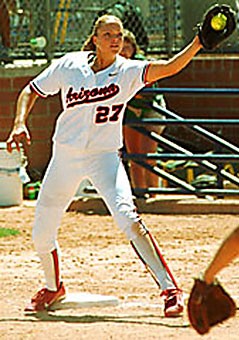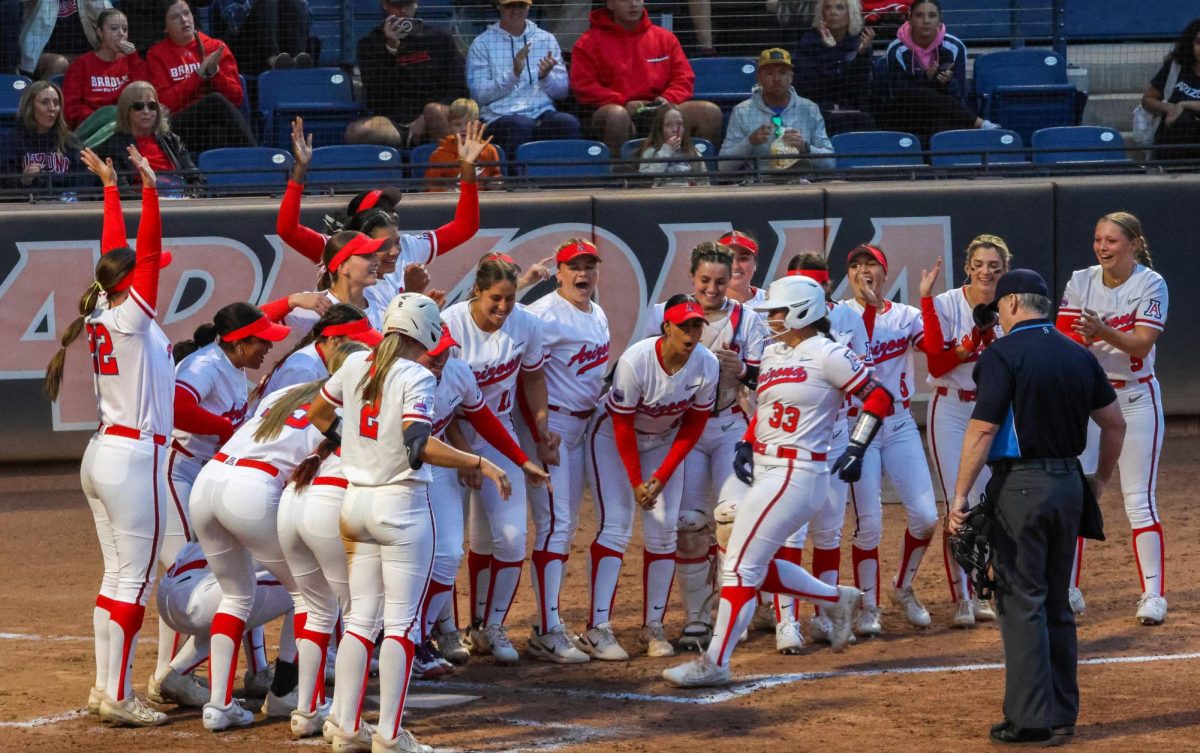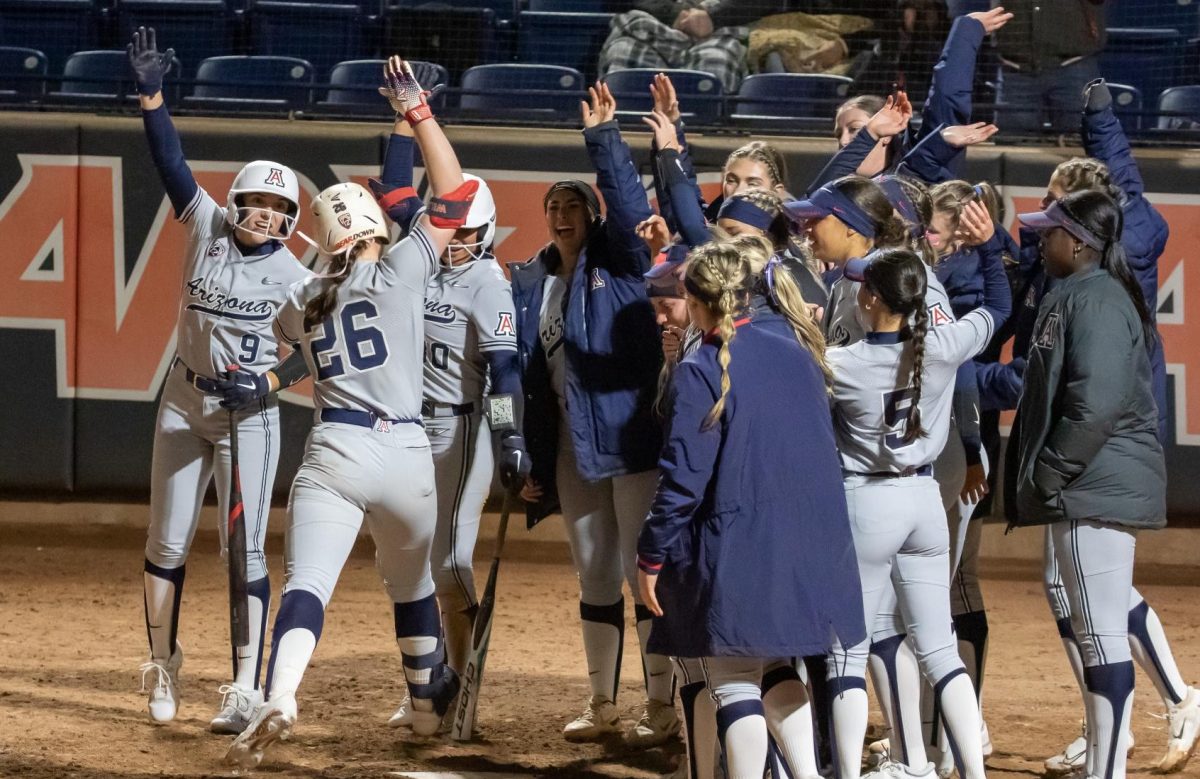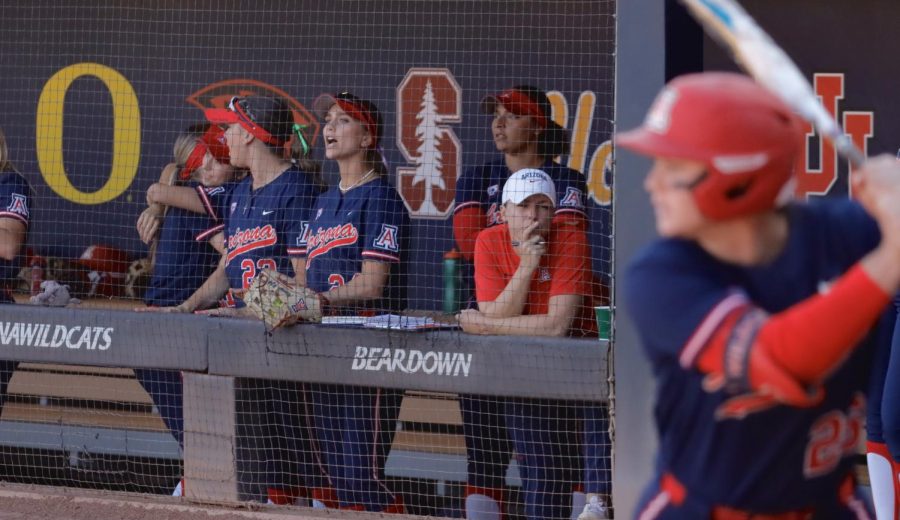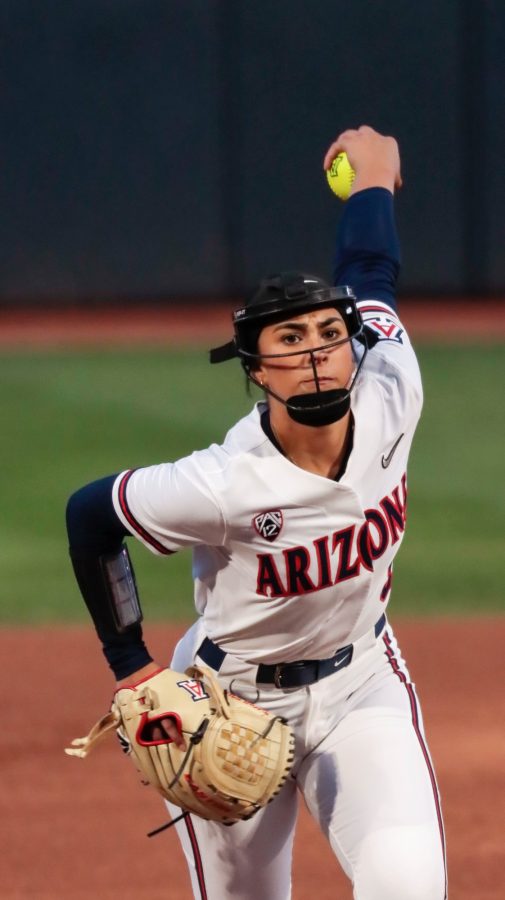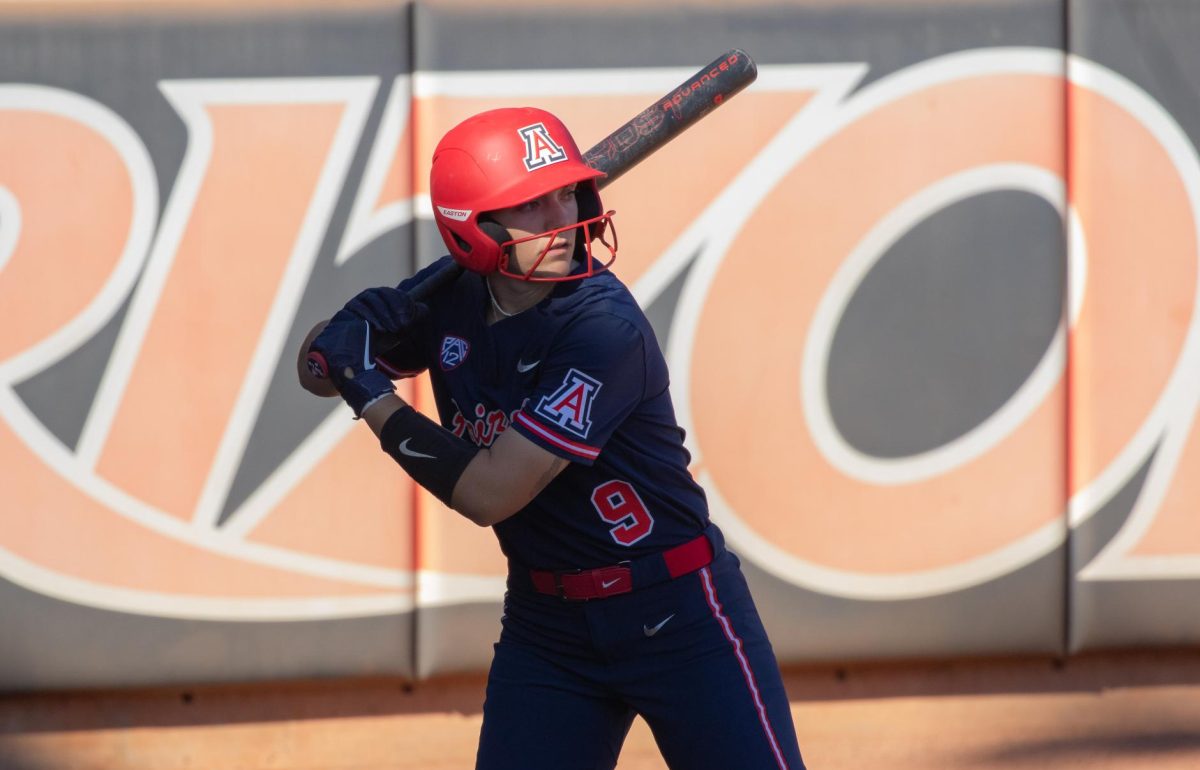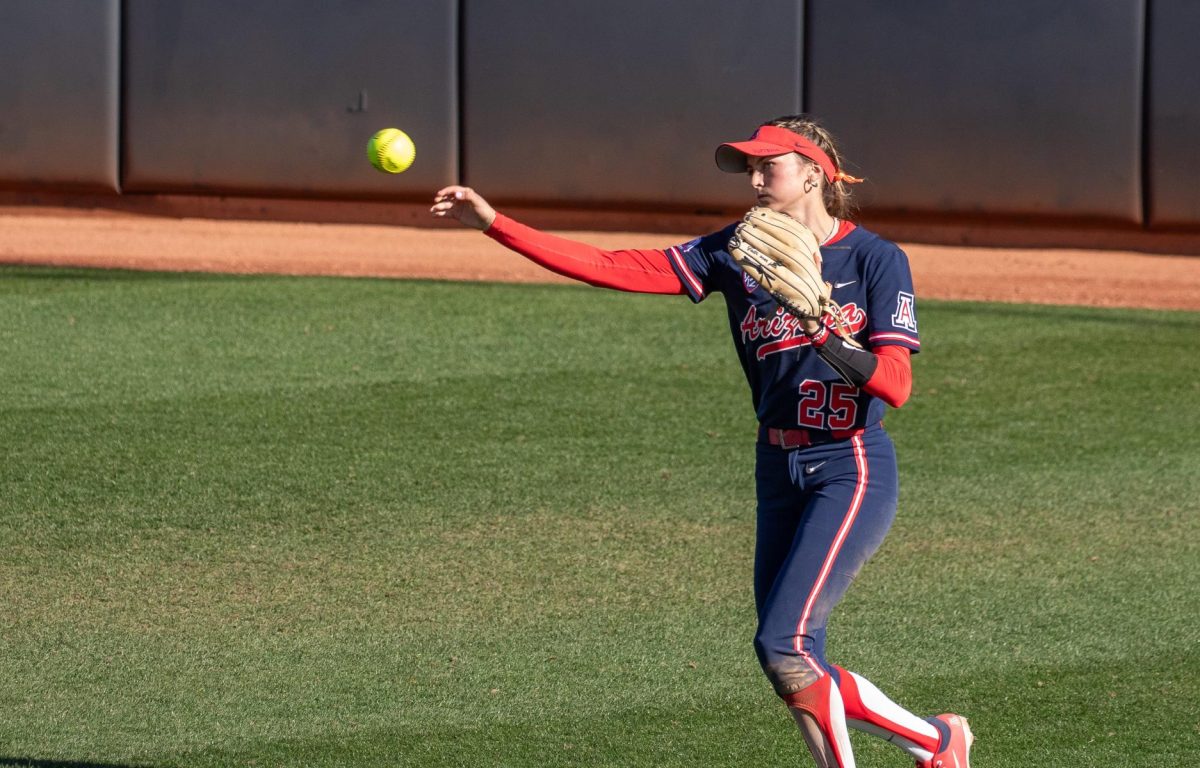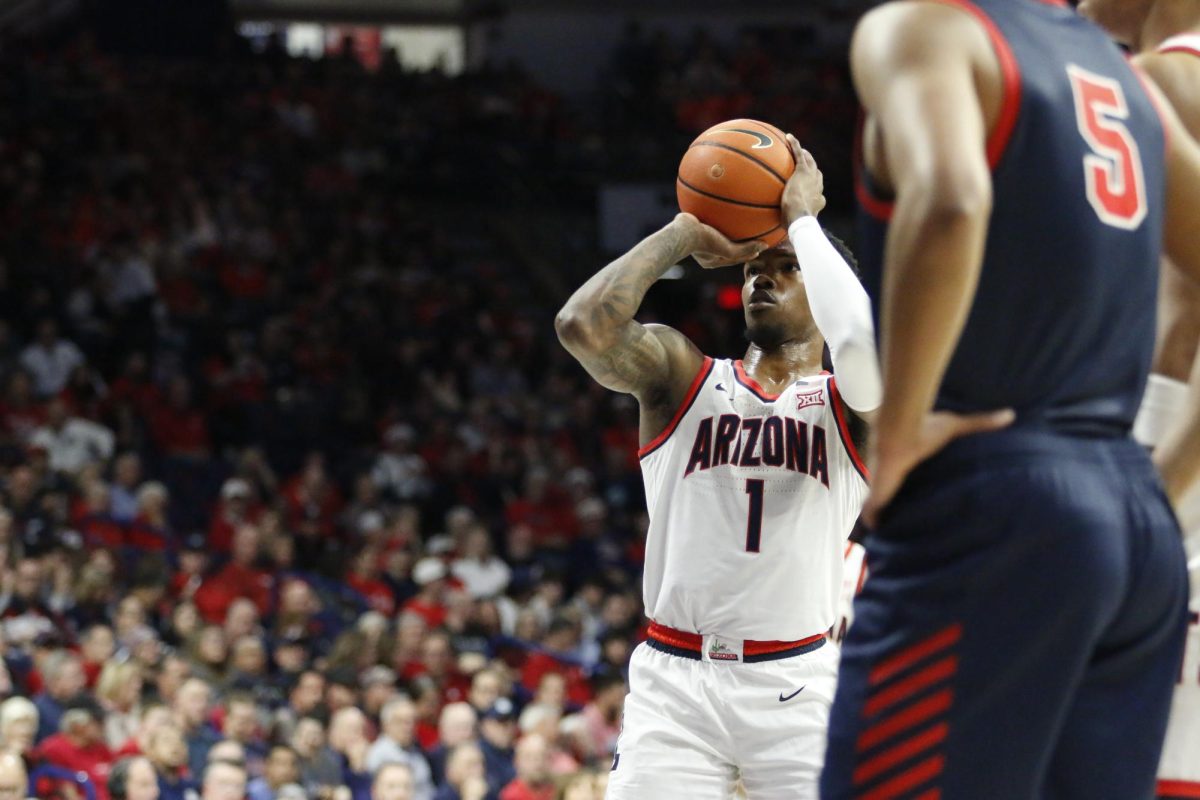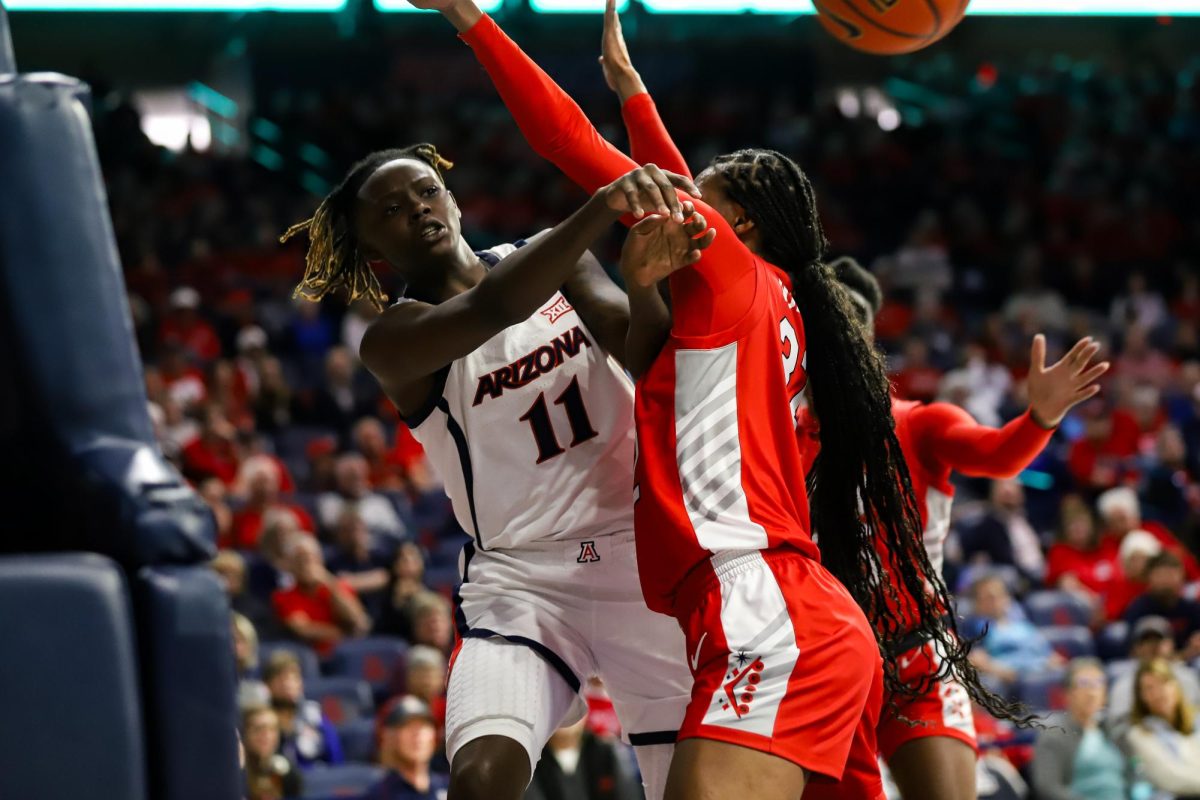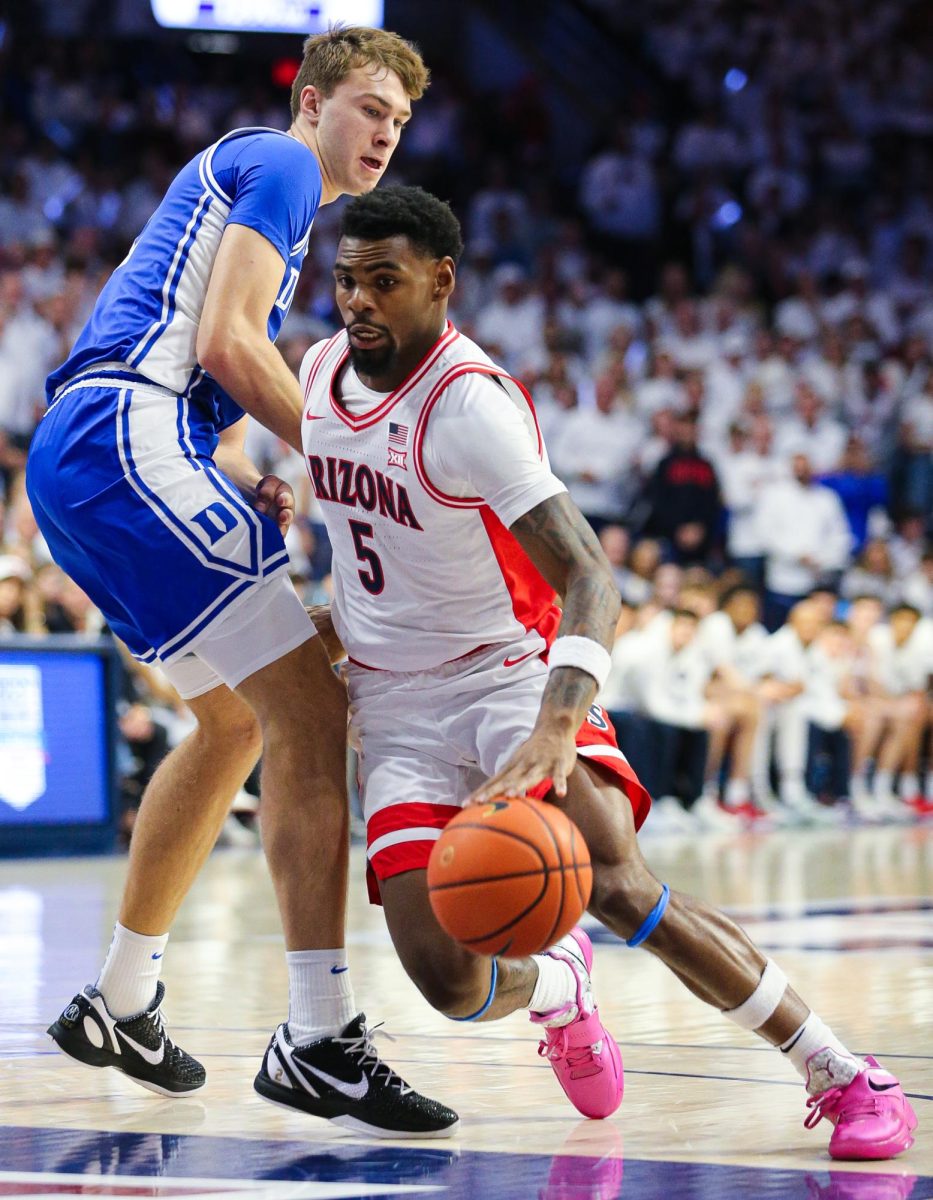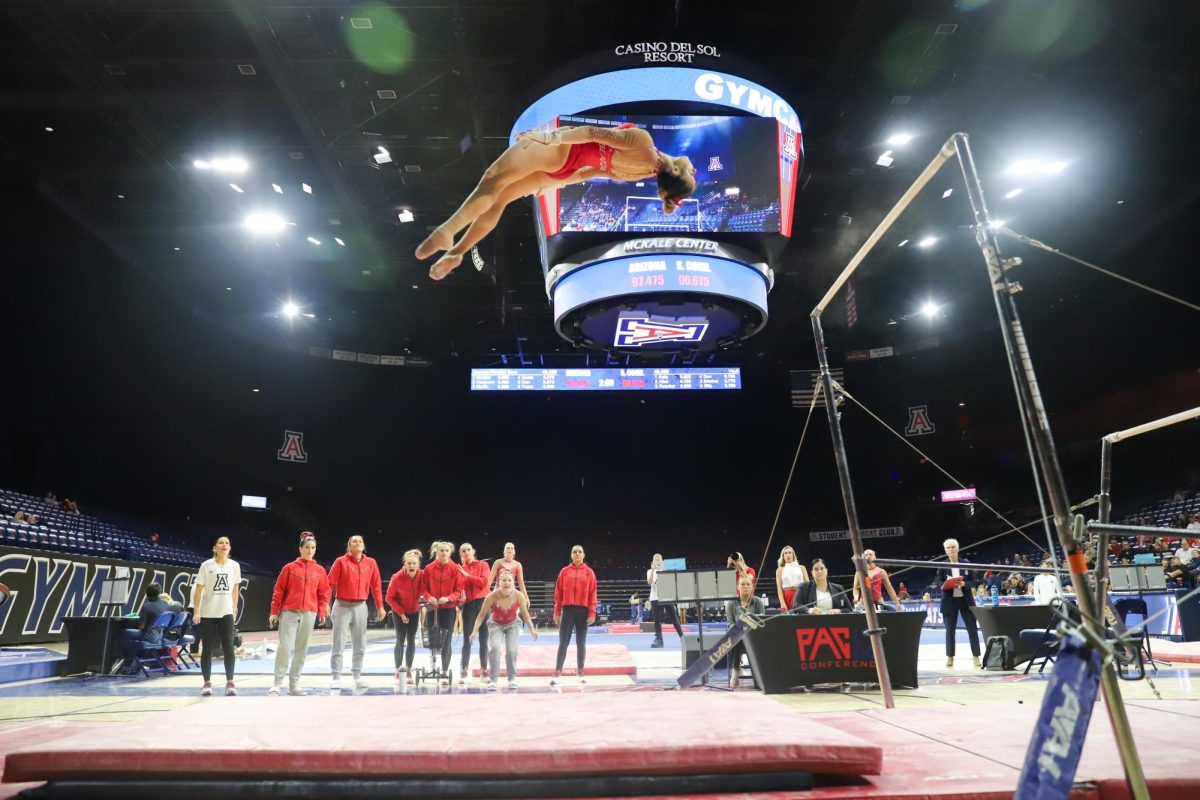Jennie Finch transcended being a great athlete.
When the 29-year-old mother and former Arizona softball pitcher announced Tuesday she would soon be retiring from professional softball, she once again proved why she has been so powerful an advocate for the sport.
“”Hopefully, I can continue to maybe do more in our sport after the fact,”” she said. “”I will forever be involved, and I want to be a part of it as long as I can.””
“”I just feel like now is the right time.””
Although she appears in the Top 10 of several statistical categories at Arizona, the former Wildcat doesn’t top the record books in many.
Sure, she went 32-0 during her junior season, won an NCAA record 60 games in a row at one point and took home the 2001 Women’s College World Series, but that doesn’t describe who she is as a person. Finch’s career should be applauded for how much she did for the sport itself.
Simply put, she was the face of softball.
Arizona head coach Mike Candrea said Finch, a great all-around athlete, achieved greatness that went beyond the field, where she was able to pitch, hit and field, all at an Olympic level.
“”No matter who she touched, she made them feel special,”” Candrea said. “”I think that’s why there’s so many young kids that have grown up that have Jennie Finch as their idol.
“”She was a tremendous player, one I always admired because of her athleticism … but more importantly, being a great teammate, someone that could make people feel good about playing with her and playing behind her when she’s on the mound.””
It should be compared to what Michael Jordan did for basketball and what Babe Ruth did for baseball. And as it turns out, those Sports Illustrated covers and television appearances were only part of why Finch pushed softball so easily.
It was her character that took her far, making her a fan favorite.
Her advocacy, reminiscent of the Dream Team in basketball, helped softball spread not only in the United States, but globally as well.
It’s not a stretch to say that Finch’s outreach created parity in the softball world.
Why else would Team USA lose to Japan in the 2008 Olympic gold-medal game? And why else would the 2010 NCAA season have No. 15 and 16 seeds defeating the No. 1 and 2 seeds to make the final eight in the WCWS?
Finch’s influence, perhaps?
Still a capable athlete, Finch said she wants to take in what she’s missed between training and traveling as a professional athlete.
“”The goodbyes from my son (Ace) and my husband (Houston Astros pitcher Casey Daigle) have gotten more difficult as I’ve gotten older and my son has gotten older,”” she said.
Following her final World Cup with Team USA and then her season with her professional team, the Chicago Bandits, Finch will devote time to her family, a quality Candrea said he saw in her during her recruitment out of La Miranda, Calif.
“”I think Jennie has been one that’s always kept a balance between her family and her profession, and her spiritual connection is very strong,”” he said. “”I just think that she’s always seen that softball is very important, but she also sees the big picture.””
That big picture will continue to pitch Jennie Finch as the best-known woman in softball.
— Kevin Zimmerman is a journalism senior. He can be reached at editor@wildcat.arizona.edu.



